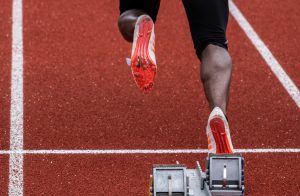Using bullying as a tactic to develop mental skills or toughness is not effective for achieving long term results – and here’s why.
During an interview with Dr Jen Fraser, for the End Bullying and Abuse in Sports Summit, Director and Senior Consultant at Athlete Assessments, Bo Hanson, explains Coaches who use bullying tactics will not attain long-term results or succeed in developing the personal growth, mental skills, or mental toughness of their athletes.
Over the course of the hour-long seminar, bullying was compared to the strategies and ideas that are proven to develop resourceful, resilient athletes who possess mental toughness. Bo and Dr Fraser discussed the ways coaches can nurture relationships that encourage teams to play for themselves, for each other, and for their coaches. Those who participated in the workshop also learnt to identify when athletes are seeking their coach’s recognition, and how this can affect an athlete’s self-belief.
Bo’s approach begins by acknowledging that very few athletes progress to the professional levels, and many find other extremely valuable ways of contributing to society. For coaches and administrators, this means understanding the important role we play for our youth by ensuring that our programs focus on more than just win or loss outcomes and, actually help develop our athletes as people outside of their sport.
Whatever your coaching style is, bullying has no place in sport.
When you consider bullying tactics, you realize there is no guarantee that they will develop the desired mental toughness. This is particularly relevant for athletes who don’t possess existing mental skills to convert challenging situations into effective strategies they can use in difficult competitions.
Hanson explained that coaches will push their athletes into challenging situations with the belief that they will develop survival strategies which can be used to create winning outcomes in competition, except these responses are short-term. In the moment athletes may rise to the occasion of their coach’s abuse but are unable to sustain this elevated level of performance and instead will begin experiencing high levels of stress. This can have serious lasting ramifications on the athlete. Bo notes that, “When people no longer feel safe, you can forget about sustaining every other aspect of their performance.”
Bo and Dr Fraser highlight the differences between a bullying coach and a coach like Quinnipiac University’s Women’s Rugby Coach, Becky Carlson, with her successful track record including 3 national titles with teams she’s built deep and enduring connections with.
Developing these connections is crucial and a lot of the time may come through small interactions where a coach recognises an athlete’s bid for their attention. These bids may simply be sharing a positive experience in their lives, or maybe a struggle. By noticing and acknowledging these moments, coaches can start to connect with their athletes on a more meaningful level.
Finding connections sets a crucial foundation for coaching and Bo elaborates that, “The primary attribute that coaches must have, regardless of their team’s performance, is a belief that an athlete can improve, and a belief in the athlete as a person.”
Bo explains, “As a young athlete, you don’t understand, and you don’t necessarily have that self-belief. But when somebody starts to believe in you and you consider them to be an incredible person, you can’t help it, you begin to find reasons to believe in yourself as well.”
Current research has found that medal-winning athletes have strong coach-athlete relationships. Bo says, “Coaches that consider their role to require caring and nurturing, regardless of the results, saw their job as finding ways to get the best out of their young athletes as people.”
About the ATHLETE TOUGHTM PROGRAM
The ATHLETE TOUGHTM Program, developed by Bo Hanson, does not include bullying anywhere as a strategy for developing toughness! Instead, it covers 15 relevant and impactful areas for developing mentally tough athletes using proven strategies that encourage growth in your athletes.
Bo Hanson’s unique and proven program is designed to ensure your athletes never give up, never quit on their team, and never quit on themselves. It will deliver strategies on how to be mentally resilient and provide step-by-step processes to help your athletes become and stay mentally strong.
Find out more about the ATHLETE TOUGHTM Program.
Recommended Articles
Building Belonging in Sports Programs
Compelling new research has revealed that despite constant connectedness through digital mediums, Gen Y and Z are lacking critical real-world interaction, leaving them lonelier than their older generations.

Avoid ‘The Domino Effect’ and Determine Your Own Success
In its simplest form, the domino effect can be described as looking at life, or sport, as a series of interconnected events or experiences. Pushing one domino has a knock-on effect to the next, and the next, and so on until inevitably all the dominos are lying flat.

Olympic Study: What Differentiates Superelite Athletes from their Competition?
In the lead up to the Tokyo Olympics (now being held in 2021), we have been reflecting on the lessons that emerged from the 2012 London Olympic Games. In particular, the research into consistently successful super athletes and the factors that distinguish them from their elite competition. The results may surprise you!




